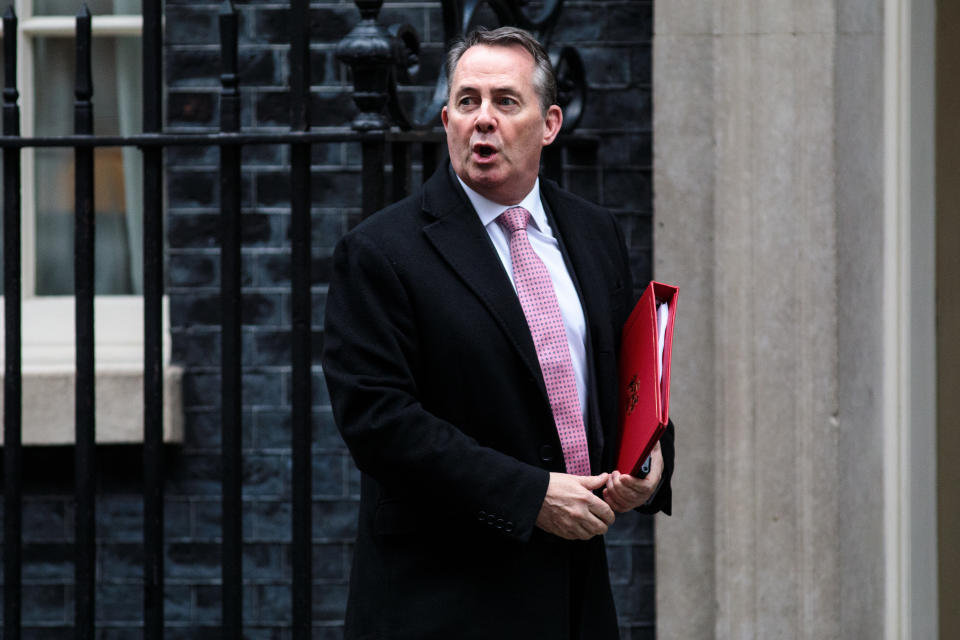UK trade minister Liam Fox says he doesn't support dropping tariffs to zero

UK trade minister Liam Fox has made a political U-turn, saying on Wednesday that he does not support the idea of slashing tariffs on all imports to zero if Britain leaves the European Union without a Brexit deal.
Fox’s Department for International Trade confirmed to Yahoo Finance UK on Tuesday that this was “one of many options on the table” to fight an expected surge in prices that would come after a no-deal Brexit on 29 March.
When a committee of MPs asked Fox on Wednesday about the issue, he said there were a range of options available and the government would make a decision on tariffs soon.
He said he didn’t like the idea of dropping tariffs to zero, but couldn’t rule it out entirely.
“Would it be a decision I would take? That is not something, in any way, shape, or form, that I would suggest,” Fox told the committee.
As a whole, the UK has very low tariffs, except for some industries like agriculture and auto manufacturing. For example, tariffs for car imports into the UK and European Union are set at 10%.
Globally, tariffs are close to their lowest levels ever — averaging around 2.9% — according to the latest data from the World Bank. Developed nations have been lowering their tariffs for years, though non-tariff barriers and national regulations still present trading hurdles. Many nations also maintain high tariffs for agricultural imports to protect local farmers and food production.
“I’m very well aware of the impact that zero tariffs would have on our agricultural sector,” Fox said, acknowledging that lowering tariffs could allow in a flood of cheap imports that would hurt local farmers.
Sam Lowe, a senior research fellow at the Centre for European Reform, told Yahoo Finance UK on Tuesday that lowering tariffs to zero would potentially counteract some inflationary pressures after a no-deal Brexit scenario. But it wouldn’t be very effective.
“Ultimately, at best this would ensure prices wouldn’t rise too much,” Lowe said.
Trade expert David Henig, who is director of the UK Trade Policy Project, has warned that certain British industries would suffer deeply if the government unilaterally scrapped all tariffs.
“Reducing all UK tariffs to zero would be potentially good news for consumers, but more troubling for UK producers in some key areas like automotive, ceramics, steel, and most of all agriculture,” Henig said.
The UK currently sets tariffs in line with the EU, but it’s looking to rejig its tariff levels after Brexit.
Countries that impose tariffs on imports must set them at the same level for all countries, according to rules set by the World Trade Organization. No favouritism is allowed, unless the country has signed a trade deal with another partner.

 Yahoo Finance
Yahoo Finance 